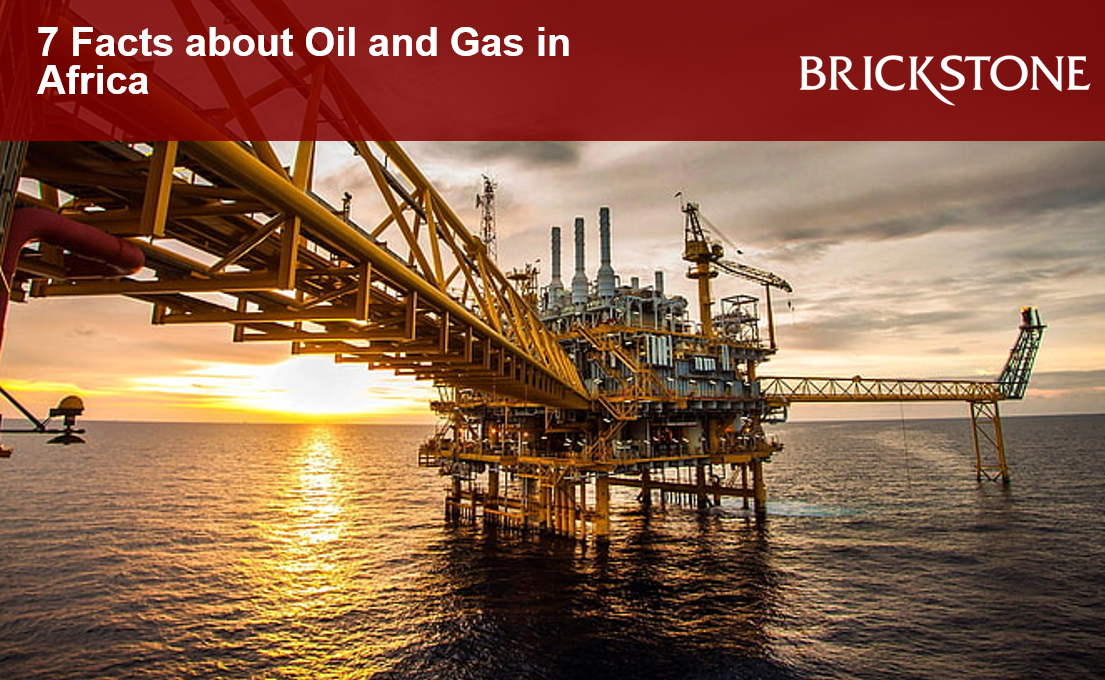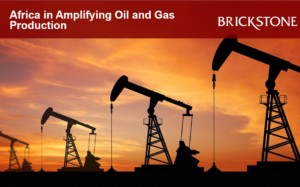7 Facts about Oil and Gas in Africa
Oil and Gas in Africa
Africa is home to five of the top 30 oil-producing countries in the world. The industry remains a primary driver of the continent’s economic growth and development. According to the African Development Bank, Africa despite housing large opportunities and potential, the exploration and exploitation of these resources are yet to be used strategically to benefit the populations.
Barriers such as limited knowledge about the quantities of these resources, lack of a comprehensive, country-based assessment, poor resources management, and lack of efficient regional security, are contributing factors to this challenge.
This article by Brickstone reviews some institutional reports and publications on key facts about Oil and Gas in Africa.
Facts about Oil and Gas in Africa
Oil and gas in Africa have experienced so much growth in the last decades. According to Offshore Technology, half of its 55 countries have proven natural gas reserves – the continent as a whole has around 9% of the world’s total gas reserves – and 17 countries already produce gas. The continent has 125.3 billion barrels of crude oil reserves and 17.55 trillion standard cubic metres of natural gas, and according to S&P Global Platts, almost 40% of global new gas discoveries in the last decade were in Africa.
The following are interesting facts about Oil and Gas in Africa:
Springer affirms that the exploration of crude oil in several African countries has brought foreign earnings into those countries, which in turn will improve the living conditions of the population if properly harnessed and managed. Notwithstanding the cost of natural resources management in Africa is high due to lack of infrastructures, poor education, and over-dependence on foreign experts, managerial incompetence, and corruption which has disproportionately affected and hampered the economic growth and development of most African countries.
According to Statista, crude oil and natural gas production is distributed widely in Africa but heavily concentrated in the West and North regions. Located on the West African coast, Nigeria is the major and more mature African oil producer, accounting for around 20 percent of the continent’s production in 2021. Libya, Algeria, Angola, and Egypt follow, composing the five leading African oil producers. Moreover, these five countries also constitute the largest producers of natural gas in Africa. Together, they accounted for over 90 percent of the continent’s output in 2020.
According to Energy Capital Power, Angola has overtaken Nigeria as the biggest oil producer in Africa. With over 9 billion barrels of proven oil reserves, Angola is committed to unleashing the full potential of its hydrocarbon sector.
With the main African oil and gas producers in West and North Africa, the regions accounted together for some 10 percent of global oil exports in 2021. That same year, Nigeria led crude oil exports, with 1.6 million barrels of oil sold on the international market per day. The country also exported large quantities of natural gas, around 50 billion standard cubic meters, following Algeria and Egypt. Natural gas exports from both Northern African countries reached 85 billion and 62 billion standard cubic meters. Consequently, fossil fuels play a crucial role in producing countries’ economies.
Apart from the established main producer countries, other African nations have been rising as potential players. As of 2020, Africa counted over 15 upcoming liquids projects. The main one is located in Uganda, with an estimated resource volume of 945 million barrels of oil equivalent. Moreover, roughly 40 percent of global gas discoveries in the last decades were in Africa. As the third-largest holder of natural gas reserves in the region, Mozambique has a promising future in the sector.
According to a report by Deloitte, numerous African countries have sought affiliation with the Organization of Petroleum Exporting Countries (OPEC) to stimulate investor interest. Equatorial Guinea joined OPEC in 2017 but lacks new discoveries and is working maturing oil fields. While oil and gas resources are likely to shrink in the coming decade, the country is still the second-largest producer of natural gas. In May 2018, Equatorial Guinea announced plans to develop a natural gas mega hub linking onshore processing and offshore production facilities.
McKinsey’s recent analysis has found that most African oil & gas producing nations are highly exposed to the global energy transition, as their economies depend on oil and gas revenues, while their reserves both cost more to produce and are, on average, more carbon-intensive than oil and gas from other regions. Positioning oil and gas in Africa for this transition, Energy Digital recommends the increasing and strengthening of local oil and gas workforce capabilities, preparing for tomorrow’s energy demand, reducing the costs of oil and gas production, and optimizing fiscal policies and streamlining business.
Read more on Oil and Gas in Africa here.






